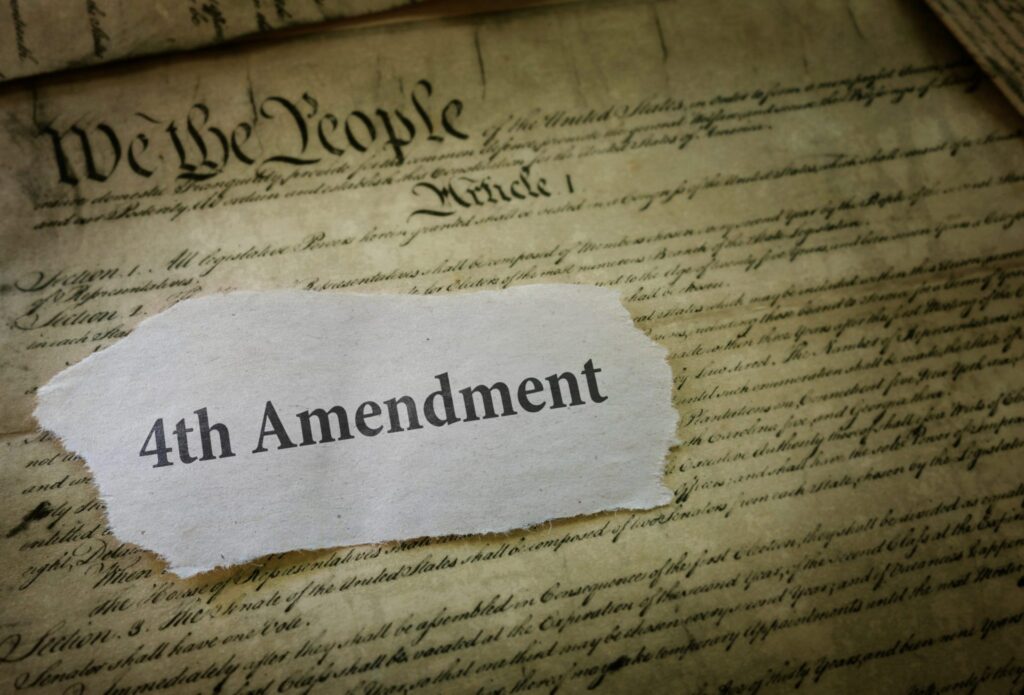The Fourth Amendment is the most constitutional protection for people who are being investigated for a crime. However, if the Fourth Amendment has been around since 1792, why are the oldest cases that deal with it from the 1960s?
The answer takes us from the American Revolution through the First Amendment, the Fourteenth Amendment, the Civil War and slavery, and a little-known legal concept called the Incorporation Doctrine.
The Bill of Rights and the Federal Government
After the American Revolution was won, the colonies joined together into a country, the United States of America. However, a big concern among the politicians of the time was how much power this newly centralized government would have. To appease those who were worried about the government becoming too powerful, the Bill of Rights was added to the U.S. Constitution.
The Bill of Rights includes the first ten amendments. However, possibly the most important phrase in the entire Bill are the first five words: “Congress shall make no law…”
This phrase, which is technically in the First Amendment, makes an important statement about what all ten of these amendments can do: They can limit the federal government, which acts through Congress.
The Civil War and the Fourteenth Amendment
For nearly a hundred years, the Bill of Rights was known to only apply to the federal government, not to the state governments. Importantly for the Fourth Amendment, this meant that only the federal government was prohibited from conducting unreasonable searches and seizures. State governments were not prohibited from doing anything under the Fourth Amendment to the U.S. Constitution, though they could be blocked by their own state constitutions.
This all changed in the years following the Union’s victory in the Civil War. In 1868, the Fourteenth Amendment was adopted, limiting what states had the power to do: “No State shall make or enforce any law which…”
The chief concern was that southern states would continue to discriminate against recently-freed slaves by passing separate laws for them. In an attempt to prevent this from happening, the Fourteenth Amendment gave the federal government the power to intervene on their behalf and guarantee them “equal protection of the laws.”
The Incorporation Doctrine
The Fourteenth Amendment raised an important question: If the Bill of Rights guaranteed certain rights to people against the federal government, and the Fourteenth Amendment required everyone to be treated equally under the law, did that mean the states were also bound by the Bill of Rights?
The Supreme Court of the United States determined that the answer was “yes,” and began incorporating the amendments in the Bill of Rights as applying to not only the conduct of the federal government, but also the conduct of state governments, as well.
Incorporation of the Fourth Amendment
The process of incorporating the Amendments to the states, however, did not happen all at once. The Supreme Court incorporated the rights guaranteed in the Bill of Rights one at a time through a long and arduous process.
It wasn’t until 1961, in Mapp v. Ohio, that the Supreme Court finally incorporated the Fourth Amendment, applying it to actions done by state governments. Before Mapp, the Fourth Amendment didn’t apply to searches or seizures done by non-federal law enforcement which, because federal prosecution was very rare before the 1980s, meant that there were very few cases dealing with the Fourth Amendment before then.
Maine Criminal Defense Attorney William T. Bly
If you’ve been charged with a crime in Maine, call the law office of criminal defense attorney William T. Bly at (207) 571-8146 or contact him online for the legal representation you need.


